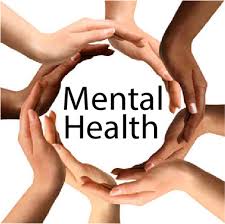Stakeholders Back Nigeria’s Push To Decriminalize Attempted Suicide
…FMH engages partners, communities to promote mental health, reduce stigma, and prioritize humane interventions

Dr. Nafisat Makinde, Abuja
In a decisive step to reform mental health policy, the Federal Ministry of Health and Social Welfare has intensified efforts to decriminalize attempted suicide in Nigeria, advocating a shift from criminalization to compassionate care. The announcement came during the 2025 World Suicide Prevention Day commemoration, themed “Changing the Narrative on Suicide: Creating Hope Through Action.”
Coordinating Minister of Health and Social Welfare, Prof. Muhammad Ali Pate, in a speech delivered on his behalf, emphasized the urgent need to tackle the growing suicide burden in the country. According to him, criminalization discourages individuals from seeking help, reinforces stigma, and denies survivors the medical care they require.
“Suicide is preventable, and compassion is critical. With awareness, early intervention, and access to mental health services, we can save lives,” Prof. Pate said. He outlined key milestones toward reform:
October 2023: Ministerial declaration emphasizing the need to decriminalize attempted suicide.
November 2023: Approval of the National Mental Health Policy and National Suicide Prevention Strategic Framework (2023–2030).
October 2024: Inauguration of the National Taskforce on the Decriminalization of Attempted Suicide, tasked with producing evidence-based reforms.
The Ministry has developed a draft Government White Paper and a proposed amendment to the National Mental Health Act 2021, designed to repeal punitive provisions in the Criminal and Penal Codes, protect survivors from prosecution, and guarantee access to care. These documents have been submitted to the Attorney-General of the Federation, with plans for an Executive Bill to formalize decriminalization.
Permanent Secretary Daju Kachollom noted that while suicide is often underreported, the human, social, and economic toll is immense. She cited World Health Organization estimates of over 700,000 lives lost globally to suicide each year—roughly one every 40 seconds—and stressed that criminalizing attempts compounds personal suffering. “Our aim is a humane, health-centered response,” she said.
Stakeholders from civil society, professional bodies, faith-based organizations, and international partners rallied behind the Ministry’s initiatives. Clinton Health Access Initiative (CHAI) highlighted Nigeria’s ranking as seventh globally for suicide prevalence, stressing the urgency for reform. Secure the Future International Initiative reported ongoing awareness programs in schools and universities, while the Christian Association of Nigeria (CAN) called on faith-based groups to champion decriminalization efforts.
Dr. Joe Bitsimon, representing the Association of Clinical Psychologists in Nigeria, affirmed that attempted suicide is a cry for help, not a crime. “People going through mental health challenges need care, not punishment,” he said.
The International Committee of the Red Cross (ICRC) drew attention to emerging suicide concerns in conflict-affected communities in Borno and Adamawa states, announcing targeted awareness campaigns involving local stakeholders.
Adding a personal perspective, Hauwa Ojeifo, founder of She Writes Women, recounted her experience with a mental health condition and suicide attempt. “At the point where I should have been receiving help, I was told I had committed a crime. Changing the narrative means humanizing experiences and including lived voices in policy-making,” she said.
Dr. Godwin Ntadom, Director of Public Health at the Ministry, emphasized preventive measures, multi-sectoral collaboration, and the training of health workers. He noted that equipping frontline staff with revised curricula and conducting regular assessments at points of entry are crucial to safeguarding public health. “Suicide is a public health challenge. Together, society can foster empathy, encourage help-seeking, and ensure that every life is valued,” he said.
With the support of national and international partners, the Federal Ministry of Health and Social Welfare reaffirmed its commitment to building a society where mental health is prioritized, stigma is reduced, and no Nigerian suffers in silence.

